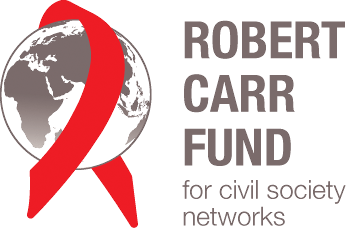It perpetuates fear through a set of decisions that force those living with HIV to disclose their status, even if the risk of transmission is non-existent.
Canada’s reputation as a caring and progressive society has been tarnished by how the nation’s highest court has stigmatized people living with HIV. And, as recent court battles show, the supreme court rulings aren’t just charged and stigmatizing, they are also on shaky legal ground.
During an impassioned lecture at the University of Calgary recently, celebrated human rights advocate and HIV activist Justice Edwin Cameron, of South Africa’s highest court, described the treatment of those living with HIV at the hands of the Supreme Court of Canada (SCC) as a “uniquely Canadian monstrosity.
“Worldwide, despite antiretroviral treatment, about one million people die of AIDS annually. Many of them, roughly but accurately expressed, are dying of stigma,” said Cameron, who was diagnosed with HIV in 1986. His struggle with the virus, and his advocacy work, formed part of his best-selling memoir, Witness To AIDS.
Stigma, he argued, is “a social brand of judgment, an imprint of contempt and ostracism” that perpetuates silence and shame, and even fear of diagnosis, meaning too many people are not accessing the treatment that can restore their health.
The Supreme Court of Canada, charged Cameron, has served to perpetuate that fear with a set of decisions that imposed a legal duty on those living with HIV to disclose their status to partners even if they are receiving antiretroviral treatment, which reduces the virus to virtually undetectable levels.
“Canada has a dubious distinction. After the United States and Russia and eastern European countries,” said Cameron. “It has prosecuted more cases, it has put more people in prison for simple non-disclosure of HIV infection, than any other country. It lags behind only a handful of jurisdictions in absolute numbers of convictions.”
And all the prosecution, which results from non-disclosure being treated in Canada as a criminal offence, is doing more harm than good, according to the Community, AIDS, Treatment, Information Exchange (CATIE), a Canadian group that promotes good practices for treatment and prevention programs for those living with HIV and hepatitis C.
CATIE points out there is zero evidence to show criminal penalties deter participation in behaviours that present risk of transmission. But prosecution is effective in deterring people from getting tested, while giving the public a false sense of security that criminal prosecutions will somehow protect them, Cameron pointed out. CATIE has recorded at least 184 instances of criminal charges in Canadian cases of non-disclosure.
“How can it be that Canada places so injurious a brand mark of stigma on people living with HIV, more so than many other western countries,” stated Cameron.
At the heart of it lie two supreme court decisions — (R v.) Currier and (R v.) Mabior.
‘Rape with no rapist’
Henry Currier of B.C. was charged with aggravated assault for not disclosing his HIV to two women with whom he had consensual, unprotected sex. Neither of his partners contracted the virus but the Supreme Court ruled his failure to disclose his condition constituted fraud, thus negating consent.
“The result was rape with no rapist, but instead only a sexual partner with a medical condition that was neither communicated, nor transmitted to the other partner,” said Cameron. The decision, “punished those with HIV solely for having HIV and for not disclosing it.”
“In doing so (R. v.) Currier created a new monster legal category of aggravated assault with no assault, except emotional exposure to an infectious disease, and no aggravation, except judicial enforcement of societal condemnation of the accused person’s conduct… in not disclosing his infection.”
“This criminal category, the most expansive, judicially created doctrine targeting HIV on the planet, is a uniquely Canadian monstrosity.
The issue of HIV non-disclosure returned to the Supreme Court in 2012 with R. v. Mabior.
Clato Mabior stood trial on 10 counts of aggravated assault involving nine women and was sentenced in 2008 to 14 years for not disclosing his status. Mabior was receiving antiretroviral treatment at the time and none of his partners contracted HIV.
Cameron said the court failed to take into account established medical evidence of the efficacy of antiretroviral treatment and HIV transmission. Furthermore, other people living with more communicable and deadly diseases are not bound to disclose.
“From a moral point of view, Mr. Mabior, like Mr. Currier, are unappealing. But it is not the court’s task to yield to moralism or to invent overbroad criminal doctrines to enforce it.”
Published in the HuffPost on June 14, 2018
